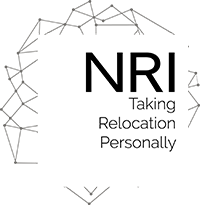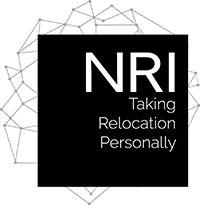In our last leadership focus post, we talked about the need for leaders to be aware of their own inner drivers as a way to making better decisions, both for themselves and for those around them who are impacted by those decisions. We also briefly touched on the topic of how self-awareness is crucial to one’s ability to effectively lead and manage others.
You’ve probably heard the saying, “People don’t care how much you know until they know how much you care.” That saying is talking about self-awareness.
To be an effective leader, especially within a business environment, you must know your strengths and your weaknesses. Additionally, to lead your team to success, you must find ways to leverage your strengths, and develop resources to minimize your weaknesses.
This process starts with self-awareness and deep personal reflection. It goes back to the core questions:
- What are my strengths?
- What are my weaknesses?
- What are my personal values?
- How can I leverage my strengths and personal values to achieve desirable results for my team and my organization?
How Well Do You “Get” Others?
If you think about leaders who inspire others, you’ll find that these leaders all share a common quality: people around them believe those leaders understand them and are sympathetic to their concerns and needs. In other words, people feel supported and inspired by leaders who they feel “get” them.
In survey after survey of employee satisfaction, employees report that having a supportive manager or employer is one of the most important components of overall job satisfaction – often more important than the size of their paycheck. In addition, companies where employees feel that their bosses care about them have less attrition and increased productivity.
What the leaders in those companies demonstrate is a critical skill for being an effective leader: social intelligence.
Why You Don’t Have To Be The Smartest Person In The Room
Social intelligence is different from IQ. Leaders with social intelligence are skilled at interacting with others, are able to present their position and themselves effectively and persuasively, and are able to powerfully influence individuals and teams.
Leaders with a high degree of social intelligence possess a high degree of two crucial components of social intelligence: social awareness and social facility. Social awareness addresses the ways in which someone understands the state and circumstances of another. Social facility uses that understanding to create harmonious relationships and interactions.
Social Awareness
Leaders who are skilled in social awareness are able to both understand and empathize with others. They are able to sense someone’s inner state, understand their feelings, and grasp complex social or interpersonal situations.
Social awareness skills should be developed in four areas:
- Attunement, in which we listen carefully and fully to the information we are being given by an employee, co-worker, or peer.
- Empathy, which allows us to identify and support the information we are given by someone.
- Emphatic Accuracy, in which we make sure we accurately understand the info we are given by another, and their intention for giving it.
- Social Cognition, in which we understand how to use the information gained in a way that is beneficial to the parties involved.
Social Facility
Effective leaders don’t just care about others; they are also able to show they care because they are masters of social facility. Similar to Social Awareness, Social Facility also requires proficiency in four key areas:
- Self-presentation, or the ability to present yourself effectively in any social situation.
- Active Listening, in which you are fully present for a conversation and listening to what is being said rather than waiting for your chance to speak.
- Synchrony, in which you are able to convey through body language and gestures the intent and sincerity of your interaction with the other person.
- Influence, in which you are able to impact the energy level of a group or organization and bring others into agreement with a position or decision.
How To Master Social Intelligence
A common misconception about social intelligence is that you are either born with it or you weren’t.
True, some people seem to come by their social intelligence skills naturally, but the good news is that social intelligence can be learned and developed. And you can begin enhancing your social intelligence skills right now.
Start by actively listening in your next conversation. Most of us tend to spend our time in a conversation preparing our response to what someone is saying, rather that actively listening for the full message. By listening – just listening – you’ll gain more information than if you are distracted by formulating your response.
Also pay attention to as many cues from the other person as you can, both verbal and non-verbal. For example, are they verbally agreeing with you – but their arms are crossed and they’re avoiding eye contact? They’re sending non-verbal signals that they are not in agreement with you. In your next meeting, look around. What is the mood of the room? What expressions do you see? Who is speaking most? Who is speaking least? What is the atmosphere in the room? Does it feel energized, tense, relaxed, or bored?
If your meeting is virtual, pay attention to voice tone. As any actor can tell you, the way in which something is said can make a world of difference in the meaning of what is said. Strong observation skills are fundamental to social awareness and necessary to employ social facility. When you pay close attention to your interactions and to what’s happening around, your awareness can be especially valuable in how you set the tone when you approach different situations.
The Payoff for Socially Aware Leaders
The advantage socially aware leaders enjoy is increased trust and engagement from their employees. As a leader, if you aren’t socially aware, you send a message that you have your own agenda and don’t care about your employees except insofar as they advance your own interests.
Employees want to feel like partners in your company. They want to feel included in decisions that impact their jobs. They want to work for managers and companies they feel can be trusted.
When you listen, observe, and empathize, you build trust and understanding with your employees. In turn, employees who feel they can trust their company become more engaged and have a better understanding of the important role they play in impacting organizational goals.

